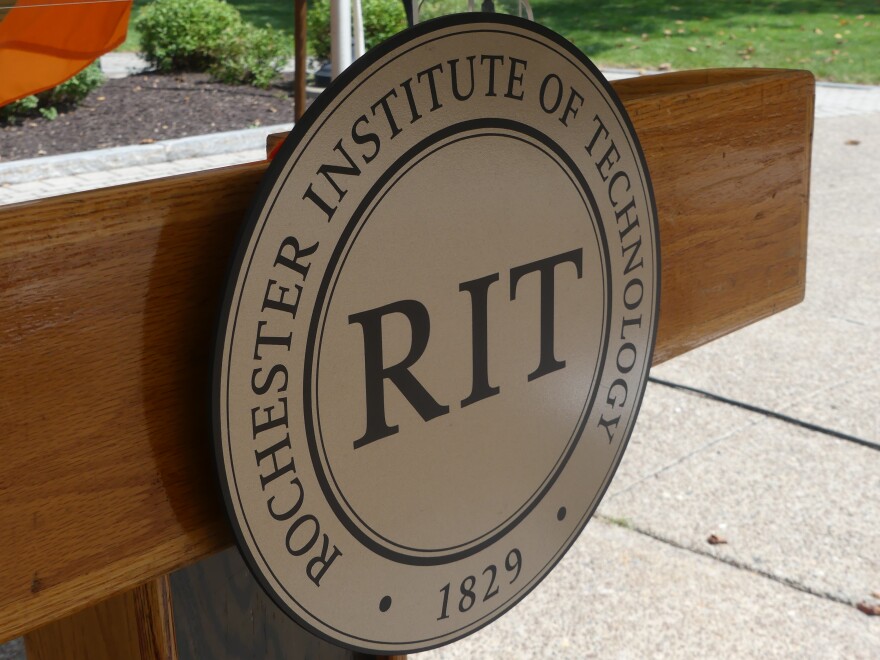In her first trip ever to Rochester Institute of Technology/NTID, U.S Sen. Kirsten Gillibrand announced a large investment to help diversify the growing field of cybersecurity.
According to the latest data from the US Department of Commerce’s cyberseek.org, there are nearly a half-million job openings in cybersecurity across the country. Gillibrand wants some of those opportunities to go to students who are deaf or hard of hearing.
Flanked by RIT’s leadership on Monday, she called for an $8 million increase in federal funding for the college in this year’s budget, which is being negotiated now. If included in the budget, the university’s total federal allocation would add up to $89.7 million.
Gillibrand, who recently joined the U.S Senate’s Intelligence Committee, said this kind of long-term investment is about national security.
“Federal support makes this education accessible to students across the country and helps NTID (National Technical Institute for the Deaf) meet the evolving needs of its students,” Gillibrand said.
“We need our most talented individuals to focus on how to be cyber warriors, cyber defenders and to be part of intelligence services and making sure that our students can be part of that is an obvious solution,” the Democrat continued.
The school’s president, David Munson, agreed with Gillibrand, saying that the country can’t afford to overlook anyone interested in learning cybersecurity.
“The world is basically facing a cybersecurity crisis,” said Munson. “We need all the talent we can muster and that includes deaf and hard of hearing individuals.”
RIT has invested heavily in its cybersecurity program in recent years, including dedicating a new building

to it. To make the school truly inclusive, NTID president Gerry Buckley said alterations are needed, like more training for sign language interpreters to understand complex jargon and add some specialized knowledge.
“It’s important to remember NTID was established 50 years ago,” said Buckley. “At that time, many of the careers that are open now to deaf people were closed in the past.”
About 200 students who attend NTID major in information technology courses.
If RIT receives the funding, Buckley said they intend to recruit alumni and other new faculty members who know American Sign Language to teach classes.
This story is reported from WXXI’sInclusion Desk.


